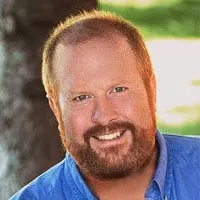By Michal Yaakov Itzhaki and Joyce Zhou
KIBBUTZ BE’ERI, Israel (Reuters) – The United Nations’ senior expert on torture visited the Israeli kibbutz communities attacked on Oct. 7, 2023, for the first time on Wednesday to offer support to families of Israelis abducted by Hamas fighters to the Gaza Strip.
Alice Jill Edwards, the U.N. special rapporteur on torture and other cruel, inhuman and degrading treatment and punishment, spoke to Reuters as talks gained momentum in Egypt and Qatar on a ceasefire deal and a release of hostages and Palestinians detained by Israel.
“I’m very hopeful for a deal. I’ve been calling for a long time for the immediate and unconditional release of the hostages. This is an unlawful act under international law. It’s an atrocity. It’s a war crime,” she said in an interview.
“I am hopeful that the families will be able to see their loved ones as soon as possible and that there will be peace restored in this region.”
Hamas fighters killed some 1,200 people and seized more than 250 hostages, of whom 100 remain captive, Israel says. Israeli troops have since killed some 45,000 Palestinians in an assault on Gaza, say health authorities in the Hamas-run enclave.
On her visit Edwards described the scene as both eerie and uneasy, a mix of flowers and greenery amid broken windows and shattered glass, the result of fire bombings that October day 14 months ago.
Edwards said she had written to the Palestinian Authority about independent and verifiable reports of sexual torture and violence that occurred on Oct. 7. She said she would also speak to Israeli authorities about credible allegations of torture and mistreatment of Palestinians in Israeli detention.
“It is very important that when you have two communities that are suffering and live so close together, that we recognize the suffering of each. They are different. They are of different scale. They will be different individually,” she said.
“But, you know, everybody counts and every life counts and we should preserve that. And that is the essence of human rights. It’s not about, you know, picking sides. The side is of human rights and the people’s right to live in safety, peace and security.”
Edwards said her goal was to document what happened in Israel and to let the hostages and their families know there are people who are fighting for the captives’ safe return, whether they are alive or may have been killed or perished.
Yuval Haran, 38, whose father was killed and whose seven relatives were abducted from Kibbutz Be’eri, stood outside the rubble of his parents’ home.
“This isn’t about the Israeli-Palestinian conflict, it isn’t about politics or right or left, it isn’t about war, it’s about human beings and we need to remember these are human beings that for almost 440 days are being held,” he said.
“We don’t care about revenge. You know, my father was murdered here, but I don’t want revenge for my father … I want all the hostages back. I want that we have a quiet and peaceful life. This is what I pray for.”
Israel has been critical of the U.N. response to the Oct. 7 attacks. U.N. Secretary-General Antonio Guterres said late last year that sexual violence committed on Oct. 7 must be vigorously investigated and prosecuted.
Edwards said: “All of the crimes that have been committed in these last 13, 14 months need independent and impartial investigations.”
(Writing by Howard Goller; Editing by Daniel Wallis)







Comments